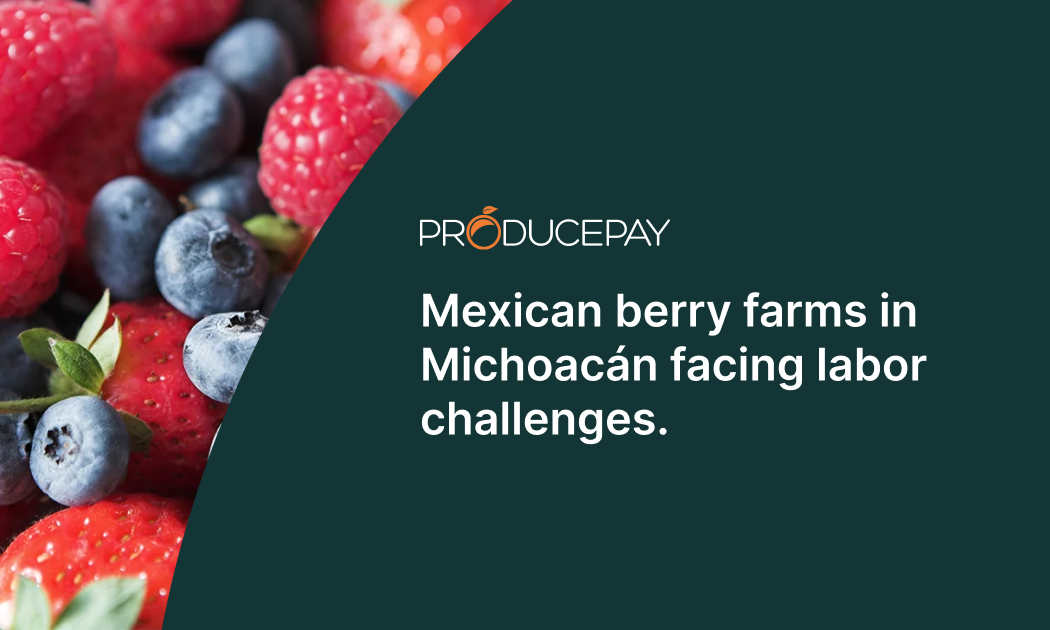
Mexican berry farms in Michoacán facing labor challenges.
Mexican berry farmers are grappling with a pressing issue that threatens their growth and prosperity: a shortage of field labor.
As berry production and exports continue to soar in key states like Jalisco, Michoacán, and Sinaloa, the scarcity of day laborers has emerged as a significant hurdle for growers in this critical sector of the Mexican economy.
Experts estimate that the soft fruit-producing states in Mexico face a shortage of approximately 65,000 day laborers.
Consequently, many growers are actively seeking year-round employment solutions to ensure a stable labor force for their operations. ProducePay’s field operations team notes that it’s not just berries that are affected; other crops, such as grapes in northern Mexico, are grappling with the same issue.
This labor shortage impacts every stage of the production chain, from seeding to harvesting and processing. It’s a significant challenge that threatens to curtail the sale and export of these highly sought-after products.
How are farmers responding to this challenge?
Farmers are employing various strategies to address this labor crisis.
One immediate response has been to import labor from other regions and states within Mexico. Farmers in states such as Jalisco are recruiting day laborers from Guerrero, Oaxaca, Chiapas, and other areas to fulfill their labor needs.
Beyond seeking solutions within Mexico, farmers are also exploring the possibility of hiring migrant labor from Central American countries. While this approach is in its early stages, it underscores the urgency of resolving the labor shortage issue to ensure continued production.
However, the industry acknowledges the need to combine labor recruitment strategies, including migration, with the implementation of advanced agricultural technologies. Only through this dual approach can the berry industry effectively address the challenge of labor shortages.
Can technology offer a solution?
While importing workers from other regions may serve as a short-term fix, technology and automation are emerging as more sustainable long-term solutions to this problem.
Adopting cutting-edge agricultural technologies, such as robotic harvesting and automated irrigation, could reduce the industry’s dependence on human labor for crucial tasks. Embracing these innovations would address the current labor shortages and enhance efficiency, productivity, and product quality.
However, this transition to technological solutions must be carefully planned and executed. It is crucial to ensure that technology adoption aligns with the requirements of berry crops and does not compromise product quality.
Need to ensure liquidity? As Mexico’s berry farming industry grapples with escalating challenges, innovative solutions are required to maintain liquidity and ensure payroll reliability. Quick-Pay financing from ProducePay is a strategic solution that can help maintain an optimized cash flow, stable operations and the well-being of your workers.
Sources: Fresh Fruit Portal, El Economista, El Economista, Informador
